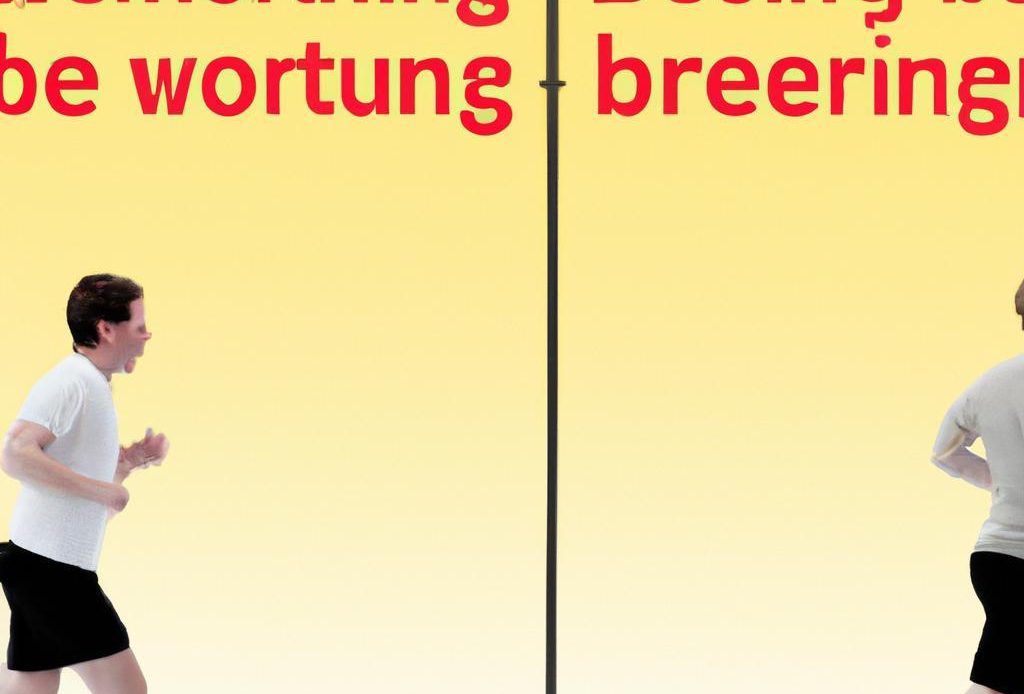
When it comes to shedding those stubborn pounds and achieving a trim waistline, the debate between jogging and running often takes center stage. Both activities promise to invigorate your body and boost your metabolism, yet they attract different enthusiasts with their own unique charms and benefits. Jogging, with its steady pace and low-impact allure, invites those who may be easing into a fitness routine, while running, characterized by its relentless speed and intensity, calls to those eager to push their limits. As we delve deeper into this age-old query—“Jogging vs. Running: Which is Better for Burning Belly Fat and Losing Weight?”—we’ll explore the science behind each activity’s effectiveness, sift through expert opinions, and ultimately help you decide which path might lead you more smoothly toward your fitness goals. Whether you’re a seasoned athlete or a newcomer to the world of cardio, understanding the nuances between these two popular forms of exercise can empower your journey towards a healthier, leaner you.
Exploring the Benefits of Jogging and Running for Sustainable Weight Loss
Jogging and running are two of the most potent tools in achieving sustainable weight loss, thanks to their ability to torch calories and improve overall metabolic health. Both activities contribute significantly to fat loss, particularly around the abdominal area, making them popular choices for those looking to shed stubborn belly fat. While running typically burns more calories in a shorter time frame, jogging offers its own unique advantages, such as increased stamina and lower impact on the joints. This makes jogging a fantastic option for beginners or those returning from injury. When considering your fitness routine, it’s essential to weigh various factors, including your fitness level, goals, and preferences, to determine which option might suit you best.
Incorporating either jogging or running into your routine can result in multifaceted benefits beyond just weight loss. Both forms of exercise can enhance cardiovascular health, boost mood, and improve sleep quality. They also foster a sense of community and motivation through group runs or clubs. To illustrate the differences in calorie burn, here’s a simplistic breakdown:
| Activity | Calories Burned (30 minutes) | Intensity Level |
|---|---|---|
| Jogging (5 mph) | 240 | Moderate |
| Running (6 mph) | 300 | High |
| Running (7 mph) | 375 | Very High |
This table demonstrates the advantages associated with both jogging and running while highlighting how they cater to different fitness levels. Whichever you choose, committing to a consistent schedule enriches the weight loss journey and sets the stage for lasting health benefits.

Caloric Burn and Metabolism: Understanding the Differences
When discussing weight loss, it is essential to distinguish between **caloric burn** and **metabolism**, as they play pivotal roles in achieving fitness goals. **Caloric burn** refers to the number of calories expended during physical activity, while **metabolism** encompasses the biochemical processes that transform food into energy. Jogging and running can both contribute to caloric burn, but the intensity and duration of the activity heavily influence the number of calories burned. Generally, running, with its faster pace, elevates heart rate and utilizes energy reserves more quickly, resulting in a higher caloric burn compared to jogging. However, the longer duration one can maintain jogging at a sustainable pace might also lead to a noteworthy caloric expenditure over time.
Understanding how metabolism interacts with these activities is crucial. A higher metabolic rate means that the body burns more calories at rest and during exercise. Factors such as **age**, **muscle mass**, and **level of fitness** can affect metabolism rates. Integrating strength training alongside either jogging or running can enhance muscle mass, thus contributing to a more substantial metabolic rate. Below is a comparison of jogging and running based on caloric burn and average metabolic impact:
| Activity | Caloric Burn (per hour) | Metabolic Impact |
|---|---|---|
| Jogging | 400-600 calories | Moderate boost |
| Running | 600-900 calories | Significant boost |
To maximize weight loss and specifically target belly fat, understanding these concepts helps in creating a tailored exercise plan. Strategies such as interval training during your running sessions can significantly spike your heart rate, leading to higher caloric burn, while also enhancing your metabolic rate faster than steady-paced jogging. Adapting your workout plan to include both activities may offer the most balanced approach to calorie expenditure and metabolic enhancement.

Crafting the Perfect Routine: Tips for Effective Fat Loss Through Either Activity
Establishing an effective routine is essential for anyone aiming to shed unwanted pounds, particularly around the belly. Both jogging and running can play integral roles in this journey, but it’s the consistency and structure of your routine that will yield the most significant results. Incorporating a variety of workouts into your regimen can enhance motivation and keep your body challenged. Consider these tips to tailor your approach:
- **Set Specific Goals**: Define clear, achievable targets related to weight loss and exercise duration.
- **Plan Your Schedule**: Designate specific days and times for your workouts, making it easier to commit.
- **Mix It Up**: Alternate between jogging and running to prevent plateau and keep your exercises enjoyable.
- **Track Your Progress**: Use apps or journals to document your workouts, inviting accountability into your routine.
Moreover, fueling your body with the right nutrients while engaging in physical activity can amplify your fat-burning potential. Create a balanced diet that complements your exercise regimen, focusing on whole, unprocessed foods. For clarity, consider the following table that breaks down essential nutrients and their benefits:
| Essential Nutrient | Benefits for Fat Loss |
|---|---|
| Protein | Supports muscle repair and growth, enhancing metabolism. |
| Fiber | Promotes satiety, keeping hunger at bay. |
| Healthy Fats | Facilitates hormone production, aiding fat utilization. |
| Complex Carbohydrates | Provides sustained energy for both jogging and running. |
Ultimately, a balanced approach that fuses quality exercise with mindful eating decisions paves the way for effective fat loss. Staying attuned to your body’s signals, adjusting your routine as needed, and maintaining a positive outlook will lead to sustainable weight loss success.
In Retrospect
In the ever-evolving landscape of fitness, the debate between jogging and running often generates as much passion as it does inquiry. Each discipline, with its unique rhythm and benefits, offers a distinct path towards achieving your weight loss goals and sculpting a healthier midsection. Ultimately, the choice between jogging and running hinges on your personal preferences, fitness level, and lifestyle.
As you lace up your sneakers and hit the pavement, remember that consistency is the true champion in the battle against belly fat. Whether you find solace in a leisurely jog or thrive in the thrill of a high-speed run, both can be powerful allies in your journey. Embrace the experience, listen to your body, and explore the nuances of both activities. By doing so, you’re not only burning calories but also building a sustainable routine that fits seamlessly into your life.
So, as you stride towards your fitness goals, ask yourself: what brings you joy on the journey? Because in the realm of exercise, the best choice is the one that keeps you moving, motivated, and enjoying every step along the way. No matter the pace you choose, your commitment to health and well-being is what truly counts. Happy running—or jogging!

